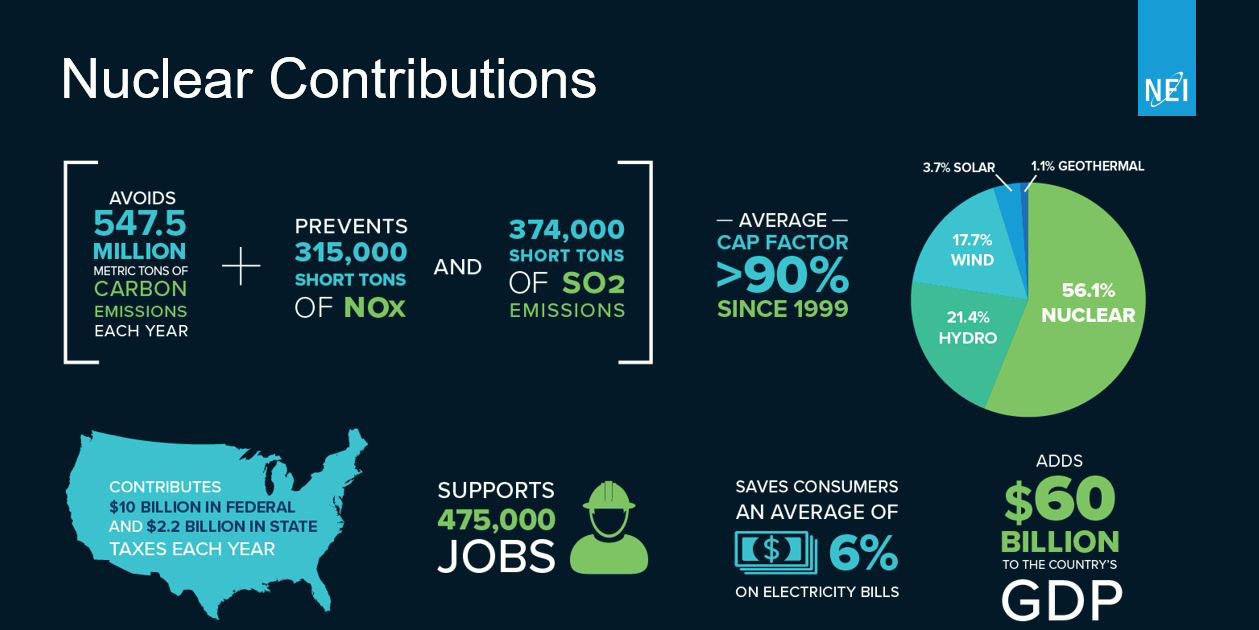The Benefits of Nuclear Power
In this article, we will explore the numerous benefits of nuclear power. Nuclear power has been a subject of debate for many years, but it is important to understand the advantages it offers in terms of energy production, environmental impact, and economic considerations. Let’s delve into the key benefits of nuclear power.
Reliable and Consistent Energy Generation
Nuclear power plants are known for their ability to generate a consistent and reliable supply of electricity. Unlike renewable energy sources such as solar or wind, nuclear power is not dependent on weather conditions. This means that nuclear power plants can provide a stable source of energy even during periods of low sunlight or wind.
Low Greenhouse Gas Emissions
One of the significant advantages of nuclear power is its low greenhouse gas emissions. Nuclear power plants produce virtually no carbon dioxide (CO2) or other air pollutants during operation. This makes nuclear power a cleaner alternative to fossil fuels, which are major contributors to climate change and air pollution.
High Energy Density
Nuclear power has a high energy density, meaning that a small amount of nuclear fuel can produce a significant amount of energy. This makes nuclear power plants highly efficient and cost-effective in the long run. The energy density of nuclear power helps reduce the reliance on large-scale fuel transportation and storage, making it a convenient energy source.
Base Load Power
Nuclear power plants can provide base load power, which refers to the minimum amount of electricity needed to meet the constant demand. Unlike some intermittent renewable energy sources, nuclear power plants can operate continuously, ensuring a stable supply of electricity to support the grid. This stability is crucial for industries and communities that require uninterrupted power supply.
Job Creation and Economic Growth
Nuclear power plants require a skilled workforce for their operation and maintenance. The construction and operation of nuclear power plants create job opportunities and contribute to local and national economies. Additionally, the nuclear industry stimulates technological advancements and research in related fields, fostering innovation and economic growth.
Reduced Dependence on Fossil Fuels
By diversifying the energy mix, nuclear power reduces dependence on fossil fuels. This is particularly important considering the limited availability of fossil fuel resources and the environmental consequences associated with their extraction and combustion. Nuclear power offers a reliable and sustainable alternative to fossil fuels, helping to ensure energy security.
Advanced Safety Measures
Nuclear power plants have stringent safety protocols and advanced technologies in place to prevent accidents and minimize risks. Lessons learned from past incidents have led to significant advancements in reactor design and safety systems. The nuclear industry continuously invests in research and development to enhance safety measures, making nuclear power one of the safest forms of energy generation.

In conclusion, nuclear power offers numerous benefits such as reliable energy generation, low greenhouse gas emissions, high energy density, baseload power, job creation, reduced dependence on fossil fuels, and advanced safety measures. By harnessing the power of nuclear energy, we can address the increasing global demand for electricity while mitigating the environmental impact associated with traditional energy sources. It is important to continue exploring and developing nuclear power technologies to ensure a sustainable and prosperous future.
Frequently Asked Questions about the Benefits of Nuclear Power
1. What are the main advantages of nuclear power?
Nuclear power offers a reliable and continuous source of electricity, produces low greenhouse gas emissions, and has a high energy density.
2. Is nuclear power a clean energy source?
Yes, nuclear power is considered a clean energy source as it does not release carbon dioxide or other air pollutants during its operation.
3. How does nuclear power contribute to energy security?
Nuclear power reduces dependence on fossil fuels, which can be subject to price fluctuations and geopolitical tensions, ensuring a more stable energy supply.
4. Does nuclear power help combat climate change?
Absolutely. Nuclear power plays a significant role in reducing greenhouse gas emissions, making it an important tool in mitigating climate change.
5. Are nuclear power plants safe?
Yes, nuclear power plants adhere to strict safety regulations and protocols to ensure the protection of both the environment and public health.
6. Can nuclear power be used in combination with renewable energy sources?
Yes, nuclear power can complement renewable energy sources by providing consistent and reliable baseload power, especially during periods of low renewable energy generation.
7. What is the lifespan of a nuclear power plant?
Nuclear power plants have an operational lifespan of around 40 to 60 years, but with proper maintenance and upgrades, they can be extended beyond that.
8. Does nuclear power generate radioactive waste?
Yes, nuclear power does produce radioactive waste. However, modern nuclear plants have effective waste management strategies in place to ensure safe storage and disposal.
9. Can nuclear power be economically viable?
Yes, nuclear power can be economically viable, especially in the long term, as it provides a stable and cost-effective source of electricity once the initial construction costs are recovered.
10. Are there any social benefits associated with nuclear power?
Yes, nuclear power contributes to job creation, economic growth, and technological advancements, benefitting local communities and societies as a whole.




